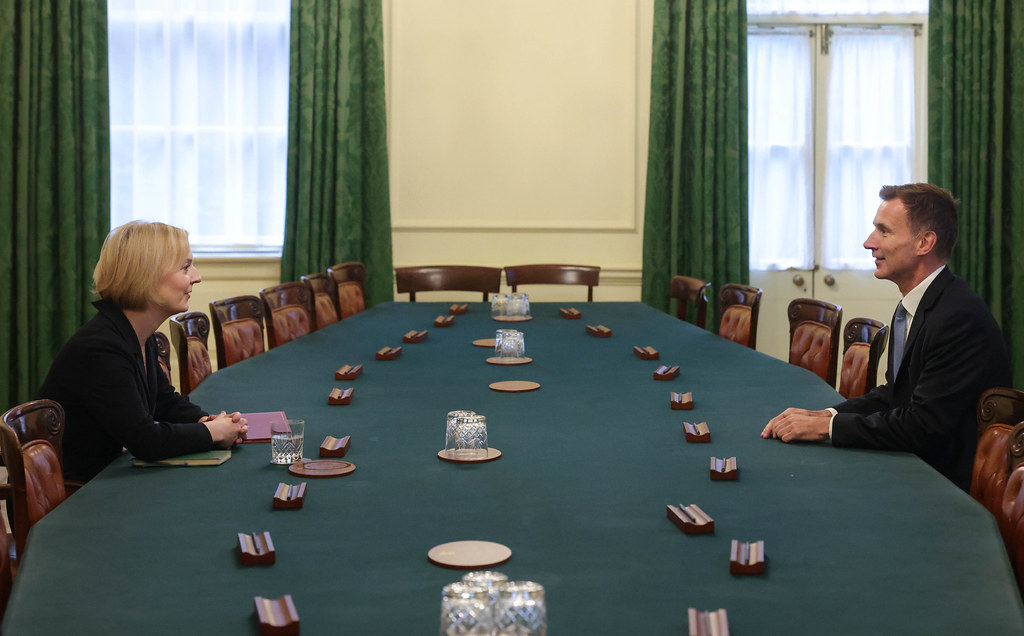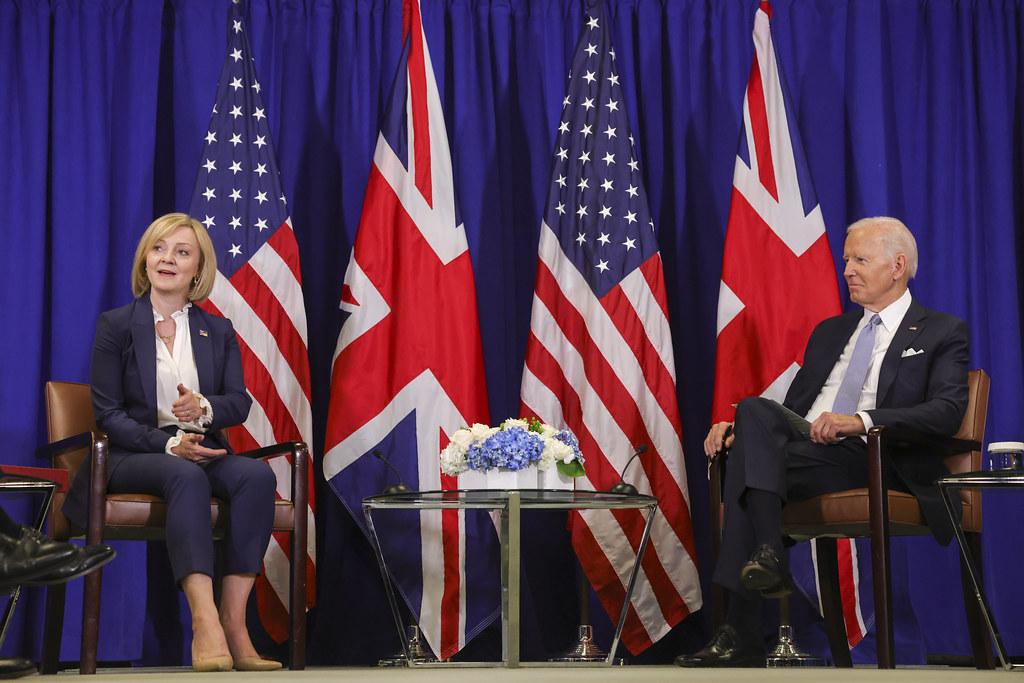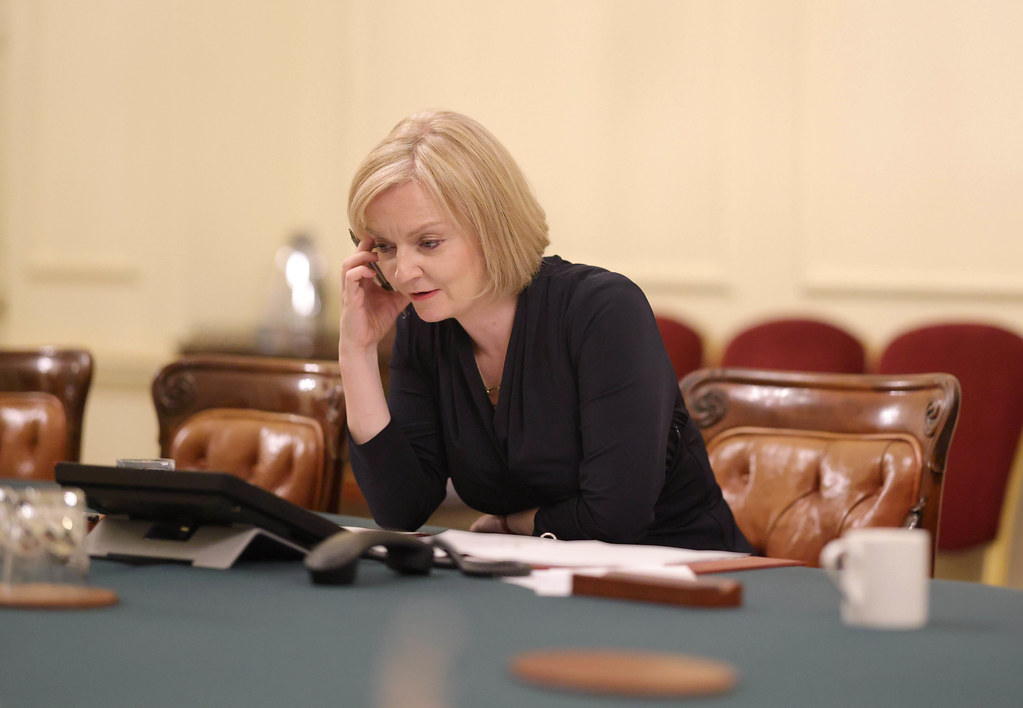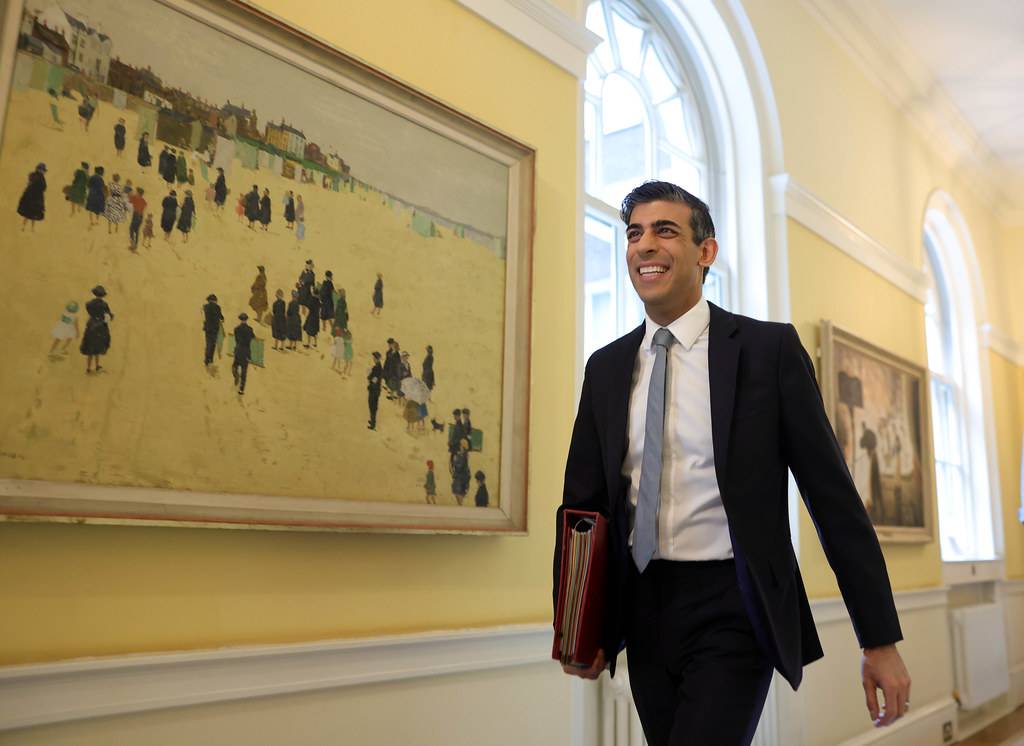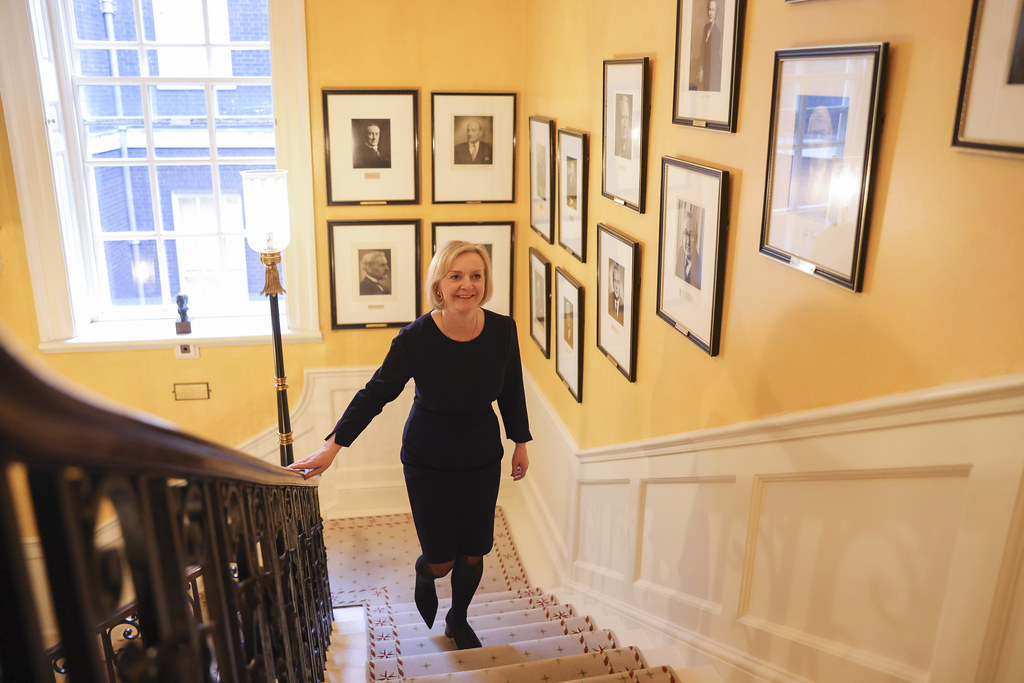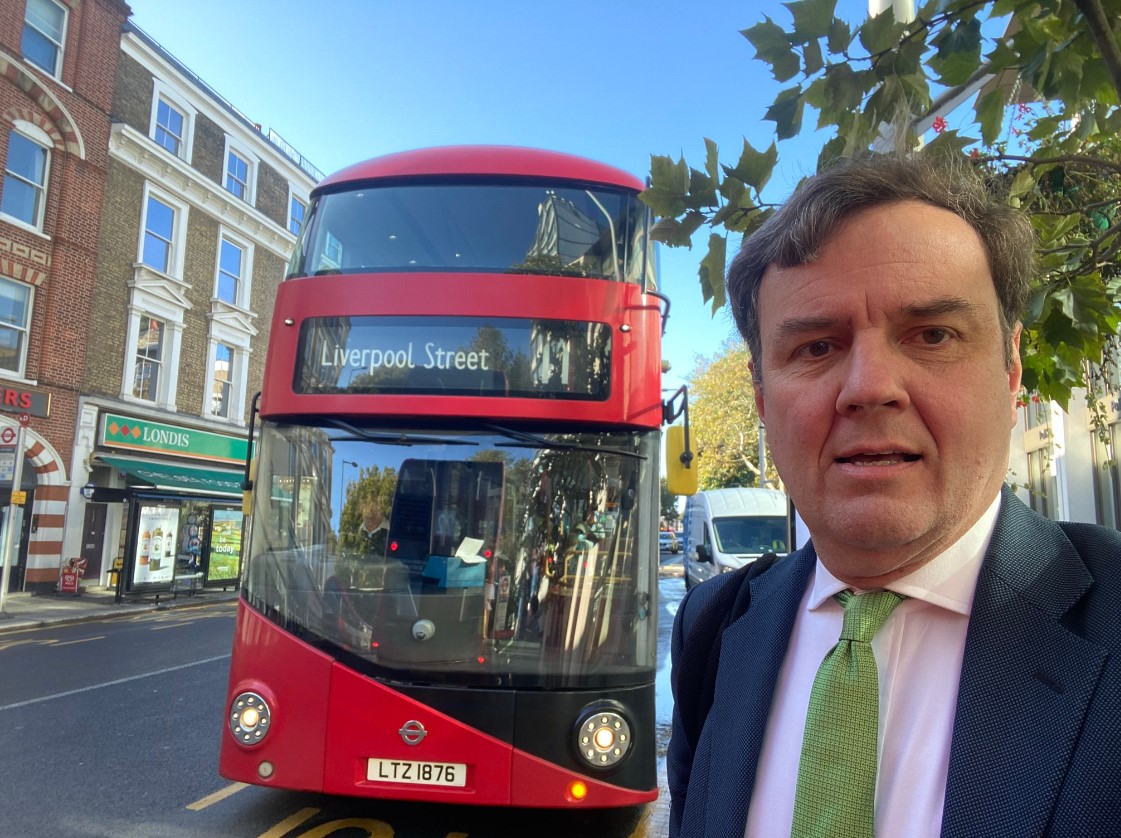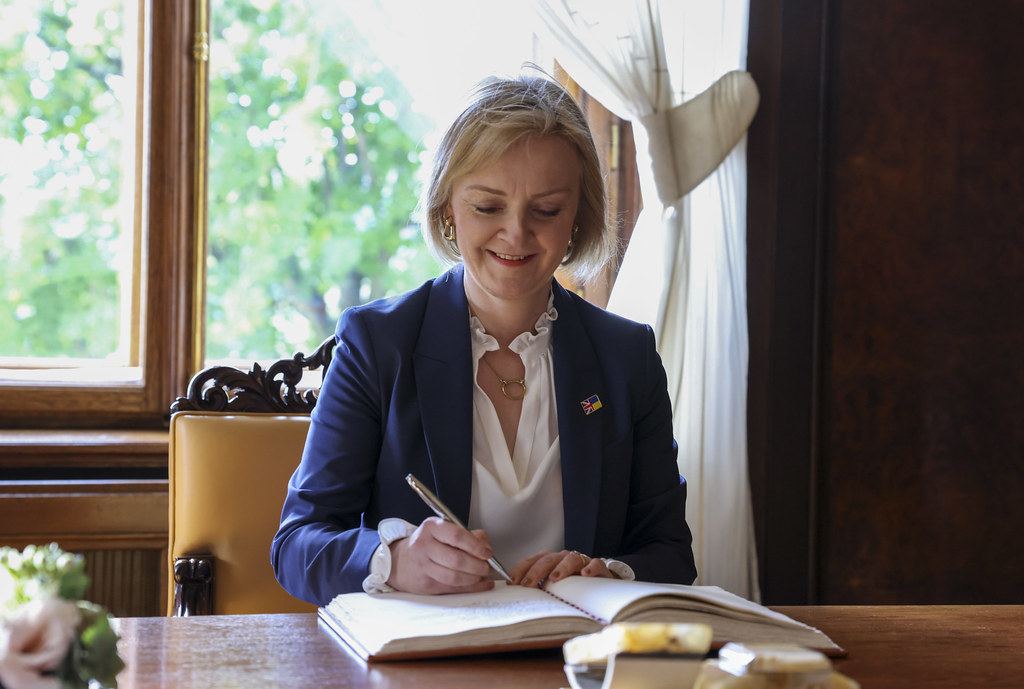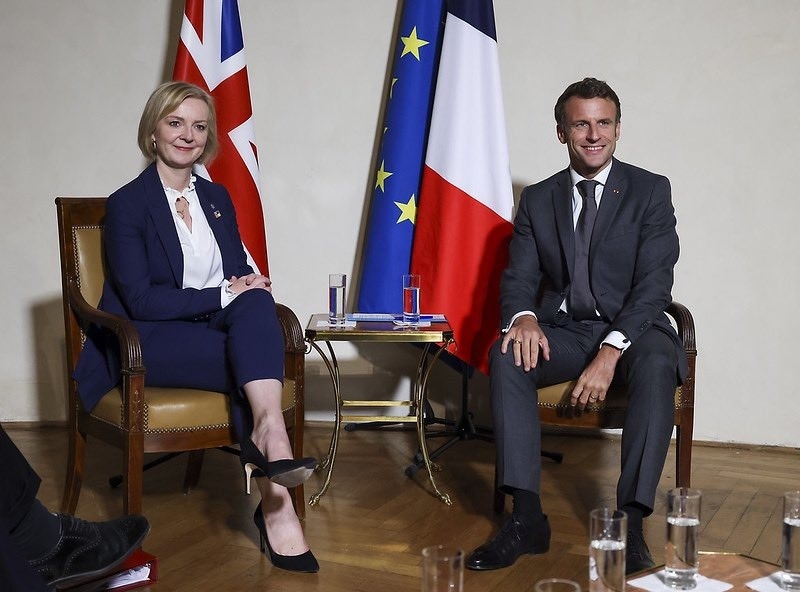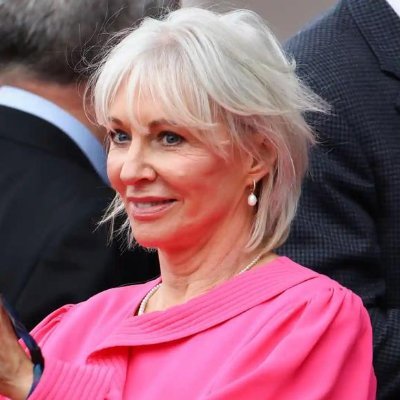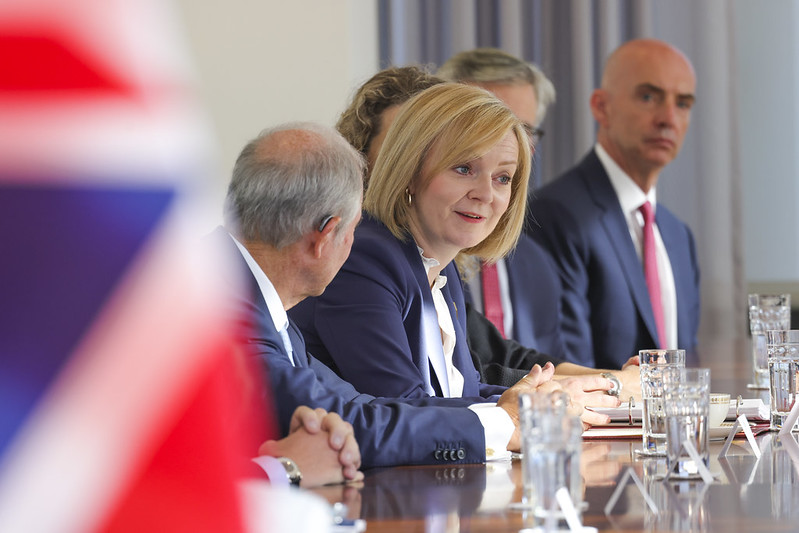Commenting on the Chancellor’s plan to bring forward publication of the fiscal plan, the chair of the Treasury Committee Mel Stride said the move would “calm the markets” and help “reduce the upward pressure on interest rates”…reports Asian Lite News
Finance Minister Kwasi Kwarteng is to bring forward publication of his medium-term fiscal plan to bring down public debt to later this month, the Financial Times and a government source said on Monday.
Earlier, Kwarteng said he was dropping his plan to scrap the top rate of income tax, which had caused an uproar including among some lawmakers within his own Conservative Party and helped trigger turmoil in financial markets.
He had previously said he would deliver his fiscal statement on Nov. 23, but in a speech to the ruling Conservative party conference said he would publish more details “shortly” of his plans for cutting debt alongside full forecasts from Britain’s independent fiscal watchdog, the Office for Budget Responsibility (OBR).
A government source told Reuters the “OBR can move quicker, so can we”.
Commenting on the Chancellor’s plan to bring forward publication of the fiscal plan, the chair of the Treasury Committee Mel Stride said the move would “calm the markets” and help “reduce the upward pressure on interest rates”.
“In particular getting the forecast out ahead of the MPC meeting on 3rd November might help to reassure our rate setters that they can go with a smaller base rate increase than would otherwise be the case,” Stride said in a statement on Monday, referring to the Bank of England’s Monetary Policy (MPC).
The FT, without citing sources, said Kwarteng was expected to accelerate publication to later this month, saying his statement would set out a five-year plan to put debt on a downward path, including a tight squeeze on public spending.
However, in his speech to the Tory conference in Birmingham on Monday, Kwarteng did say he would publish details “shortly” on how he planned to bring down public debt as a percentage of GDP over the medium term.
The chancellor earlier described the market turmoil that triggered his astonishing U-turn on income tax cuts for the highest earners as a “little turbulence” as he battled to regain authority.
The chancellor remarked it had been a “tough” day as he told Conservative members in his set-piece conference speech on Monday to “focus on the task in hand”.
Downing Street was forced to reassure that Liz Truss still backs Mr Kwarteng after they abandoned their plan to scrap the 45% rate, in a bid to stave off a Tory revolt.
The climb-down came a little over a week after the tax cut was announced in the mini-budget and just a month into Truss’s premiership.
Kwarteng tried to strike an upbeat tone about the merits of the mini-budget during his conference speech.
He said: “Our growth plan set out 10 days ago will ensure we focus relentlessly on economic growth. Because we must face up to the fact that for too long, our economy has not grown enough. The path ahead of us was one of slow, managed decline. But I refuse to accept that it is somehow Britain’s destiny to fall back into middle league status or that the tax burden reaching a 70-year high is somehow inevitable. It isn’t and it shouldn’t be.”
Commenting on reports the chancellor will agree to calls from the Treasury Committee and bring forward the date of the Autumn Fiscal Plan to October, the committee’s chair, Conservative MP Mel Stride, said: “I have pressed the Chancellor very hard on this and to his credit he has listened.
“Provided the OBR forecast and new fiscal targets provide reassurance then bringing these forward should calm markets more quickly and reduce the upward pressure on interest rates to the benefit of millions of people up and down the country. In particular getting the forecast out ahead of the MPC meeting on 3rd November might help to reassure our rate setters that they can go with a smaller base rate increase than would otherwise be the case.”
Responding to reports the debt plan publication will be unveiled earlier than expected, Labour’s shadow chancellor Rachel Reeves said: “This is a Tory economic crisis, made in Downing Street and paid for by working people.
“The Chancellor’s refusal to make public the OBR reports that could provide clarity to markets and reassurance to the British people is misguided and harmful.
“They must publish the OBR forecasts and details of their plans now, and continued failure to do so suggests the government has something to hide, further undermining confidence in the UK as a safe place to invest. The scale of the government’s chaos has shown once and for all that Labour is the party of fiscal responsibility and social justice.”
The government’s mini-budget caused chaos in the bond markets last week as investors viewed the unfunded tax cuts at a time of increased borrowing as a risky move, sending the cost of debt spiralling.
The move to bring forward the debt plan and involve the OBR will be seen as a move to calm investors who were on edge after a turbulent week.
The pound surged higher in overnight trading on Monday as reports emerged that the government was preparing to U-turn.
ALSO READ-British Home Secretary Targets Foreign Students

